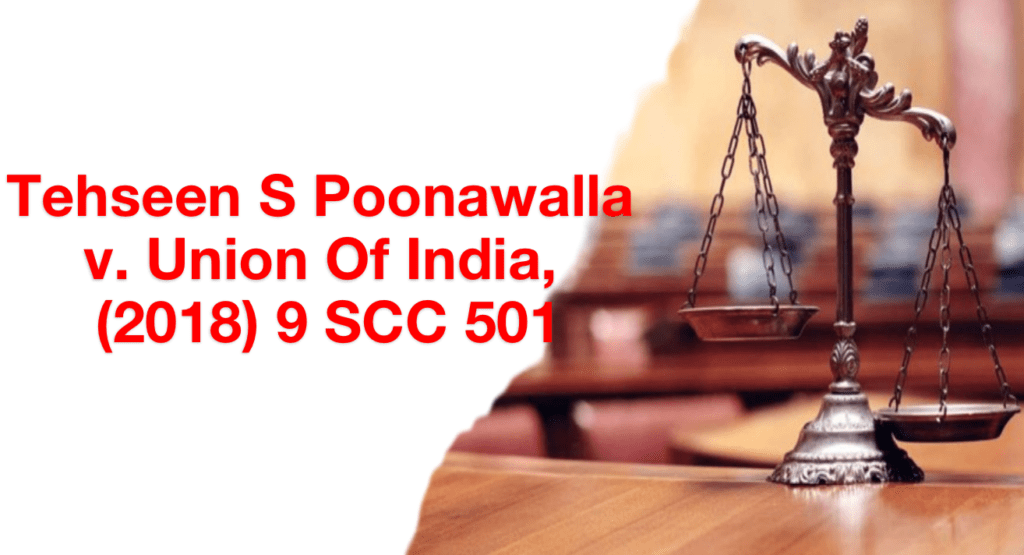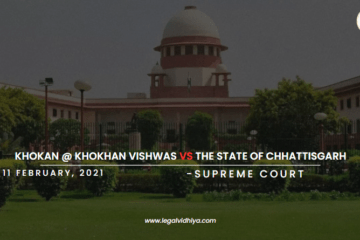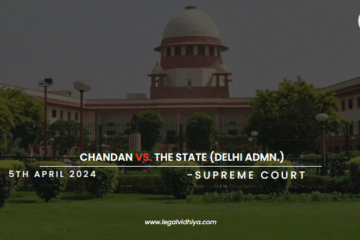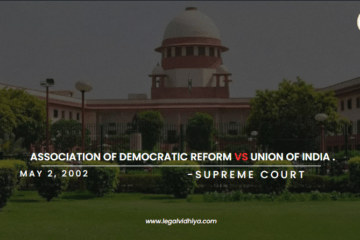
Citation : (2018) 9 SCC 501
Court : Supreme court of India
Judges : Dipak Mishra , D.Y. Chandrachud, Ajay Manikrao Khanwilker.
Theme: Mob lynching AND Cow Vigilantism in india.
Introduction :
Mob lynching in India is like a spread of a virus, where a group of people believes that they are punishing the victim not in legal manner not to take permission from any authority and killed the people on public. This is the violation of article 21 of Indian constitution and every citizen have right to life and enjoy his fundamental rights ,these are protected by state. Cow vigilantism is the use of illegal force in the name of cow protection .
Fact of the case :
Most of the incident of mob lynching in India and that was not in lawfull manner in the name of cow vigilantism .
- Tehseen S Poonawalla a journalist , a social activist filled a writ petition under article 32 of the constitution against mob lynching.
- In state of Jharkhand hanging of two men in latehar district and these act are under cow vigilantism done by a group of unknown people .
- Tushar Gandhi filled another pil to intiate state responsibility to mob lynching acts and demand compensation for the victim of mob attacks.
These are the certain facts of the case.
Issues :
- Whether or not necessary and immediate action are taken by state and centre government against mob attackers who does the violence in public?
- Whether or not centre and state should issue writ to delete all the social media contents of these cow vigilantism group?
- Whether or not certain act or laws of animal protection laws like: section 12 of gujarat animal prevention act 1954 , section 13 of the Maharashtra animal prevention act 1976, section 15 of the Karnataka prevention of cow slaughter and cattle preservation act are declared as unconstitutional?
Arguments :
Petitioner :
- This was argued by mr hedge in 2016 that no person can involve themselves in such kind action that considered as crime and if any kind of act done by these group that was followed by legal procedure. No one has break the rules and laws made by the state.
- Ms. Indira singh argued under article 256 and 257 of Indian constitution that the enforcement of rule and law. And she maintioned that state and centre governments responsibility to issue direction to state to keep doing their acts on behalf of safety and also state have duty to register the cases and solve the cases.
- Also stated that minorities are not targeted due to wrong or mis information and strict action should be taken if family member approached that is the responsibility of both centre and state.
Respondent :
- Solicitor general Mr. Ranjeet kumar , said that there is no support from union of india to these kinds of groups these incident are include under a state matter.
- Also other two states Jharkhand and Gujarat submitted their report on legal action had already taken by them against these incidents.
Judgement
Three judge bench chief justice Dipak mishra , A.m. khanwilker and Dr. D.y. chandrachud gave judgement that private person who is not any public officer or authorized person by authority can not take law into their hands.
- Every person should bring up their duty and follow the command of law which maintain the balance in society.
- Also the courts issue orders for appointment of officers nodal and also for the patrolling on highways.
State government should have responsible for the act or incidents held in their jurisdiction so they can manage by their own.
Right to life and personal liberty under article 21 of Indian constitution can not be inferred and harm by any of the individual or private authority because fundamental rights are protected by states and state have to provide some guidelines for the protection of citizens under their jurisdiction. It clearly says cow vigilantism to be against the law and put forward and guidelines to prevent this.
After listening all the arguments the supreme court of india declare some guidelines to lower the rising cases of mob lynching , these were divided under following categories:
- Preventive measures : the state government appointed in each district a officer who is not below the supretendent of police and these nodal officers can be helped by one of the dsp ranks officers and for prevent the rising cases of mob lynching and such honor killing. The reports of such crimes were got the intelligence by special task force who involve in controversial kinds of speech in public or provocative speeches that can included in these kind of violence.
- Remedial measures : FIR should be lodged in any kind of case related to mob lynching and initially give notice to the nodal officer of that jurisdiction , when nodal officer got the notice then he must have start the investigation by himself also chargesheet will be maintioned in specific period . some provisions of crpc like section 357A compensation scheme provided to victim of the family. speedy trials should be done in fast track court for speedy justice.
- Punitive measures : if any officer as nodal officer or police officer in not complete or fulfill their duty or to solve the case or by any kind of investing issue failed due to negligence of that officer so the department should be taken action against them and May be suspend them from their post.
Conclusion :
Causes of mob lynching:
- Lack of pertinence : in this time all every citizen of india if they found any news on social media like one suspect found in rape and murder case or any case that was heinous offence in the eyes of public so they think that he is a criminal and he done all the offences which are maintioned in chargesheet and if they found that person acquite from court but public think that he was criminal and on that ground they beat him badly till death and not know the facts or issues of the case so this was very bad for our society we have to patience what court said orders that should be followed because court can not give biased.
- It impacts on all forms of society like : Society , Economy , individual.
Written by: Aashi Jain of Manipal University, Jaipur, an intern under Legal Vidhiya




0 Comments